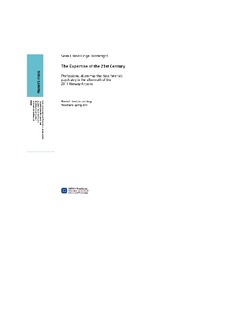| dc.description.abstract | The aim of this thesis is to investigate and identify possible professional dilemmas facing forensic psychiatry in the context of the Breivik-trial and the aftermath, to determine whether mental evaluations are given too much weight in court decisions. A contextual framework is provided, as well as the theoretical frame of reference, which relies mainly on theorists associated with sociology of knowledge, such as Foucault and Bourdieu. Their definitions of power, prestige, discourse and legitimacy are a central inspiration for my interpretation, and communicative aspects are compared to the thoughts of Habermas, Kompridis, Mercier and Sperber.
I used qualitative content analysis as my methodological approach, to examine various sources from the public debate. The main findings suggested that forensic psychiatry is antiquated, illegitimate and invalid. Evidence showed that mental evaluations un-proportionately affect court decisions, and acts of symbolic violence were detected in these, as well as within professional power struggles against opposing disciplines. Public trust in experts declined because of the power struggles, and the expert system of psychiatry was portrayed as inadequate and untrustworthy. According to evidence, psychiatric language is intertwined with the principle of medicine and related laws that guarantee their position in the judicial system. Legislation and the principle will likely be changed, and the court will be assisted by a broader academic competence in the future.
The study has shed light on the lack of transparency in the expert system of psychiatry, and it thus defies the principles of an open democratic society. The media, public and alternative fields of expertise were highly influential for the appointment of specialists, the outcome of the court trial, and for staging the necessary scrutiny and criticism of psychiatry. This would not have been possible without extensive media coverage. | nb_NO |
